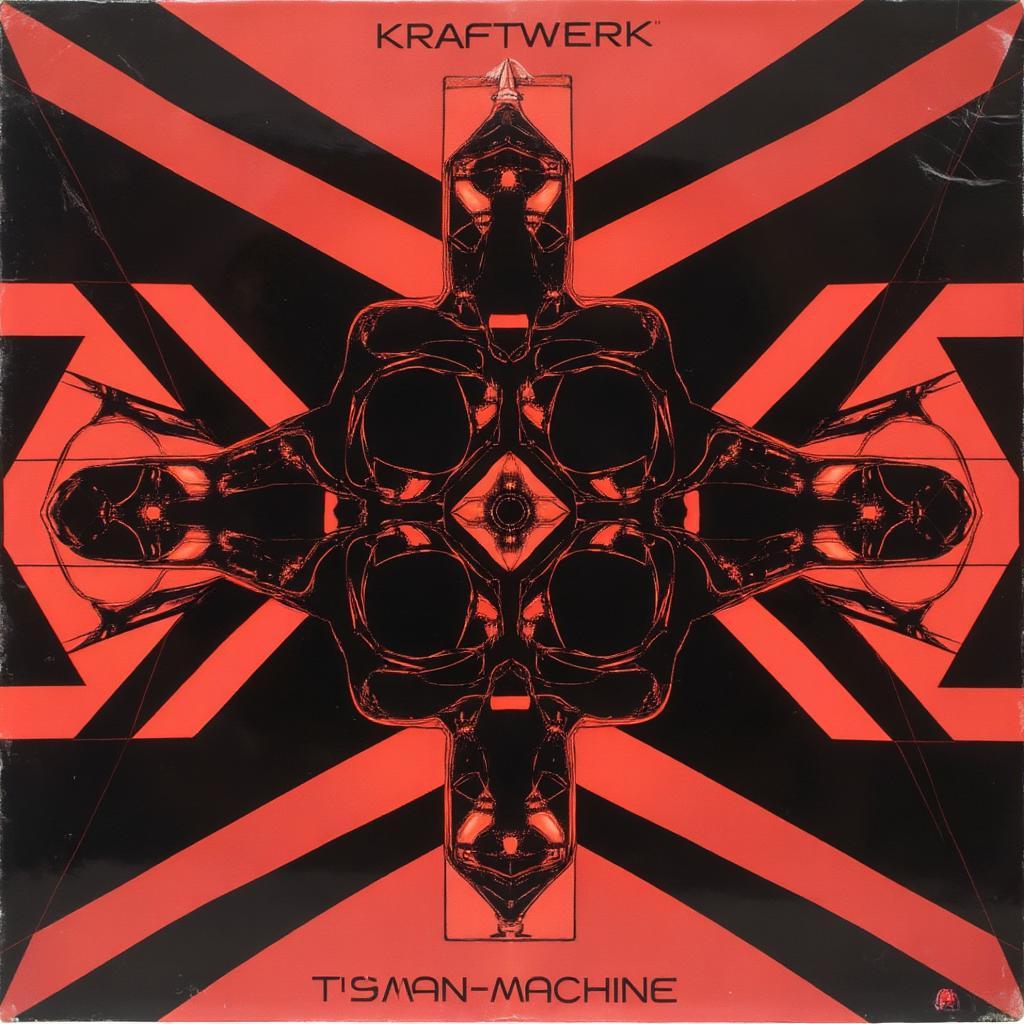Kraftwerk Techno Pop: Decoding the Pioneers of Electronic Music

Kraftwerk, a name synonymous with innovation and electronic music, stands as a monumental influence on the techno pop genre. Their unique blend of minimalist melodies, robotic vocals, and industrial soundscapes not only defined a generation but continues to inspire artists today. This article will delve into the origins, evolution, and enduring impact of Kraftwerk’s distinct brand of techno pop. We’ll explore what made them pioneers and how their work shaped the electronic music landscape.
The Genesis of Kraftwerk: A Post-War Experiment
Formed in Düsseldorf, Germany, in 1970, Kraftwerk initially consisted of Ralf Hütter and Florian Schneider. Their early sound was far from the synthesized precision they would become known for. Instead, their initial work explored experimental krautrock, with a mix of traditional instruments and basic electronics. It wasn’t until they embraced synthesizers and drum machines, that their signature techno pop sound began to materialize.
The Technological Shift: Embracing the Machine
Kraftwerk’s transformation was heavily influenced by their fascination with technology. They moved away from conventional rock instruments and fully embraced the possibilities offered by emerging electronic tools. This was more than just a stylistic choice, it was a philosophical shift. They saw machines not just as tools but as active collaborators in the creation of music. This ideology gave rise to their pioneering approach, pushing boundaries in the realm of electronic music production. This fascination is perhaps best exemplified in their iconic computer world project, where the integration of machines and humans is a recurring theme.
“Kraftwerk’s embrace of technology wasn’t just about sounds, it was about a new vision for music itself,” notes Dr. Anya Sharma, a musicologist specializing in electronic music. “They saw the potential of machines to extend creative possibilities, challenging the traditional boundaries of what constituted music.”
The Defining Characteristics of Kraftwerk Techno Pop
Kraftwerk’s brand of techno pop is defined by several key elements. Firstly, there’s their use of repetitive, minimalist melodies. These often hypnotic and cyclical patterns form the foundation of their tracks. Secondly, their robotic and heavily processed vocals, often delivered in a deadpan manner, give their music a futuristic and somewhat detached feel. This approach was groundbreaking at the time and has become a defining feature of their work. Furthermore, the rhythmic structure is remarkably precise, utilizing drum machines and sequencers to create a tight, almost machine-like groove. Finally, they incorporated sampled sounds, industrial noises, and spoken-word passages, adding layers of texture and meaning to their music.
- Repetitive, minimalist melodies
- Robotic, processed vocals
- Precise, machine-like rhythms
- Incorporation of sampled sounds and industrial elements
Key Albums and Tracks: Setting the Benchmark
Kraftwerk’s discography is filled with influential albums that significantly impacted electronic music. Their 1974 album, Autobahn, was a breakthrough, showcasing their signature blend of synthetic sounds and thematic focus on modern technology. The title track, a 22-minute journey, simulated a car ride using synthesized sounds, forever changing the way electronic music could be perceived. This is another example of Kraftwerk pushing the boundaries of musical expression.
Trans-Europe Express: The Rhythmic Drive
Trans-Europe Express (1977) further cemented their status as pioneers. This album’s rhythmic drive and thematic content about travel and technology laid the groundwork for future generations of electronic musicians. The track of the same name, with its sequenced bassline and catchy melody, is a quintessential example of their genius. The album’s themes of automation and societal implications made it stand out within the popular music landscape. The Man-Machine (1978), further explored the theme of human and machine interaction, reflecting Kraftwerk’s ongoing fascination with the merging of these two worlds. Tracks like “The Robots” and “The Model” showcase their innovative use of electronic sounds to create catchy and thought-provoking music. The use of visual concepts, like the robotic personas, further blurred the lines between man and machine.
Computer World: Predicting the Digital Age
Computer World (1981) was a visionary album that anticipated the digital revolution. It explored topics like data processing, computer networks, and the increasing reliance on technology in everyday life. This was incredibly prophetic, and decades before such themes became mainstream. The album featured songs like “Computer Love” and “Pocket Calculator,” which combined catchy melodies with cutting-edge sounds to make complex themes more accessible. They showed, with this album, that technology isn’t a cold, unfeeling thing, but can be a source of creative expression.

The Impact on Techno and Pop
Kraftwerk’s influence is apparent in almost every genre of electronic music. From techno and house to synth-pop and hip-hop, artists have drawn inspiration from their innovative sound design, minimalist approach, and conceptual themes. Their work is foundational in establishing electronic music as a viable popular genre. Many artists, such as Depeche Mode, New Order, and The Human League, cite Kraftwerk as a major influence, highlighting the band’s widespread impact.
The Legacy of Kraftwerk: More Than Just Music
Kraftwerk’s legacy extends beyond their musical output. They are also renowned for their groundbreaking live performances. Their minimalist stage presence, combined with synchronized visuals, and robotic movements created an immersive and captivating experience. This further enhanced their image as the “man-machines”, blurring the lines between performance and machine-like execution.
A Philosophical Approach to Music
The philosophical underpinnings of their work are also significant. They raised questions about the nature of humanity, the role of technology, and the future of society. Their music isn’t simply catchy melodies, it’s a statement about the times we live in, and where we might be headed. Their perspective and commentary still holds relevance in today’s world, where the intersection of humans and technology is more prevalent than ever before.
“Kraftwerk wasn’t just creating music, they were crafting a dialogue about our relationship with technology,” explains music critic, Marcus Klein. “Their robotic aesthetic was a way of questioning what it means to be human in the face of increasing automation.”
How Did Kraftwerk’s Approach Shape Modern Music Production Techniques?
Kraftwerk’s meticulous approach to music production has revolutionized recording techniques. The band’s utilization of synthesizers and drum machines paved the way for much of the modern music production technology, from sample processing to sequencing. By shifting the focus from live instrumentation to electronic sound creation, they broadened the palette of musical expression. This resulted in many new possibilities within pop and electronic genres.
The Continued Relevance of Kraftwerk Techno Pop
Even today, Kraftwerk remains relevant. Their music has stood the test of time. It continues to inspire and influence new generations of electronic music producers. This underscores the band’s pioneering vision and the timeless nature of their innovative approach to music. Their enduring influence is a testament to their enduring legacy, confirming them as true innovators of electronic music.
Kraftwerk’s influence has reached across generations. This is evident in the wide range of artists that cite them as inspiration. They truly are the originators of techno pop. They were ahead of their time in recognizing the potential and impact of technology in creating music. They changed our perception of the role of machines in the creative process. In short, they were pioneers.
In conclusion, Kraftwerk’s unique blend of minimalist melodies, robotic vocals, and technological themes make them true pioneers of the techno pop genre. Their groundbreaking work continues to shape the landscape of electronic music, influencing countless artists and solidifying their place as a monumental force in music history. The legacy of Kraftwerk remains vibrant, prompting us to consider our evolving relationship with technology and its endless potential.
Frequently Asked Questions (FAQ)
-
Who are the core members of Kraftwerk? The core members are Ralf Hütter and Florian Schneider, though the band has seen some changes throughout the years.
-
What is Kraftwerk’s most influential album? While many albums are influential, Autobahn (1974) and Computer World (1981) are considered to be some of their most important, as they showcased their signature techno pop sound and themes.
-
How did Kraftwerk influence modern techno music? They laid the groundwork for much of the modern techno sound with their use of synthesizers, drum machines, and minimalist rhythms. Their use of repetition and mechanical sounds became essential elements in modern techno music.
-
What are the defining characteristics of Kraftwerk’s music? The characteristics are repetitive minimalist melodies, robotic and processed vocals, precise drum machine patterns, and the use of industrial and sampled sounds, often combined with themes related to technology.
-
Where was Kraftwerk formed? Kraftwerk was formed in Düsseldorf, Germany.
-
What is Kraftwerk’s philosophical stance about technology? They are both fascinated and critical of it. They see the potential and the dangers of a world increasingly shaped by technology. The themes of human-machine interaction and societal impact are recurring in their music.
-
Is Kraftwerk still active today? Yes, Kraftwerk continues to perform and release music. They remain a major force in electronic music. They continuously adapt and remain relevant in an ever-changing music landscape.




